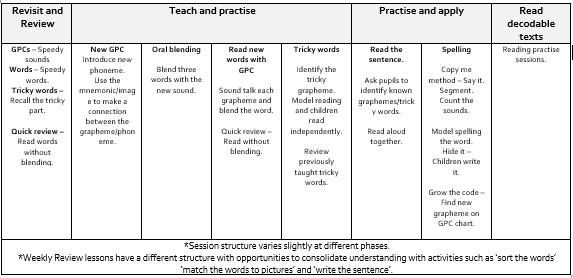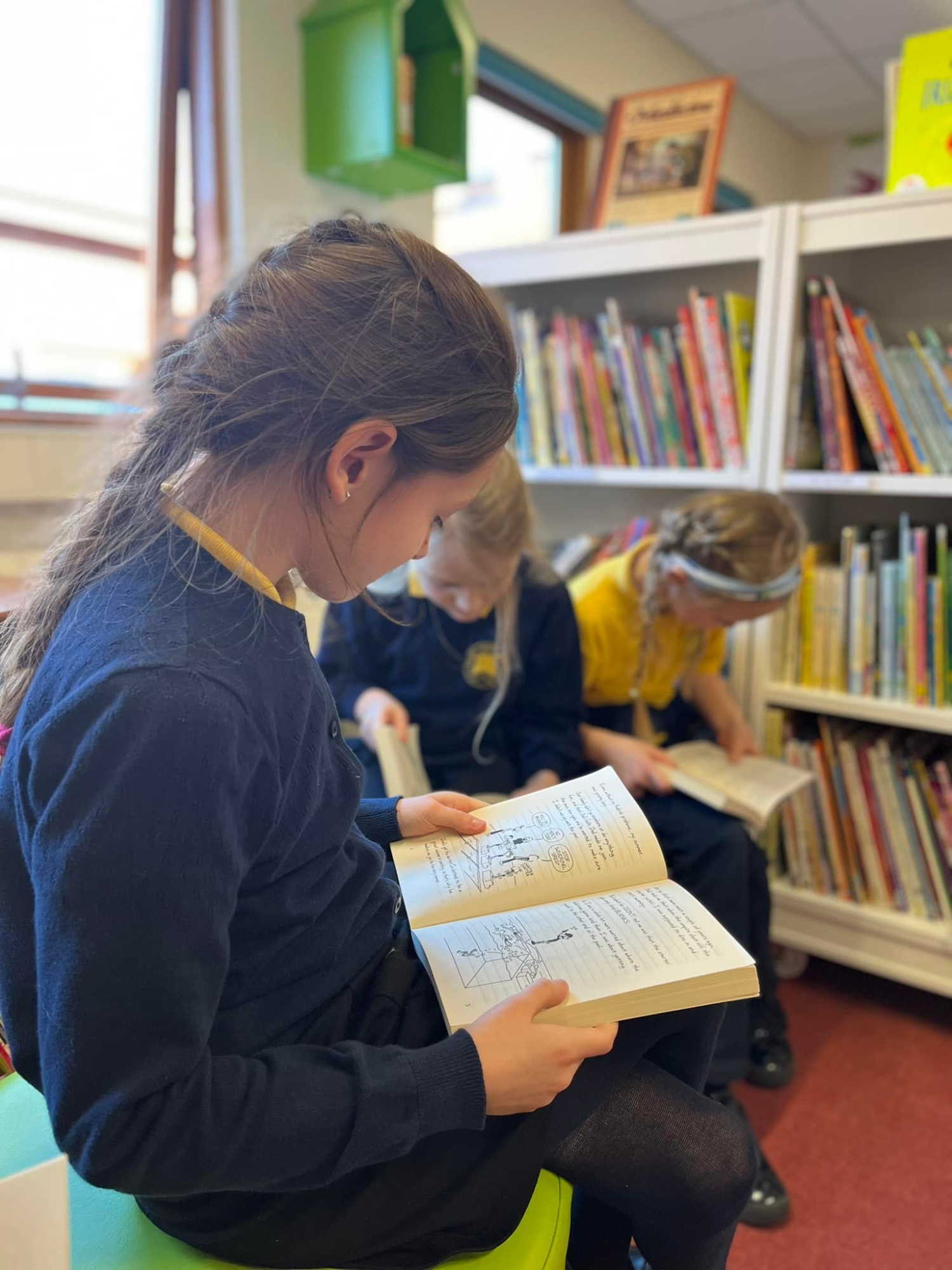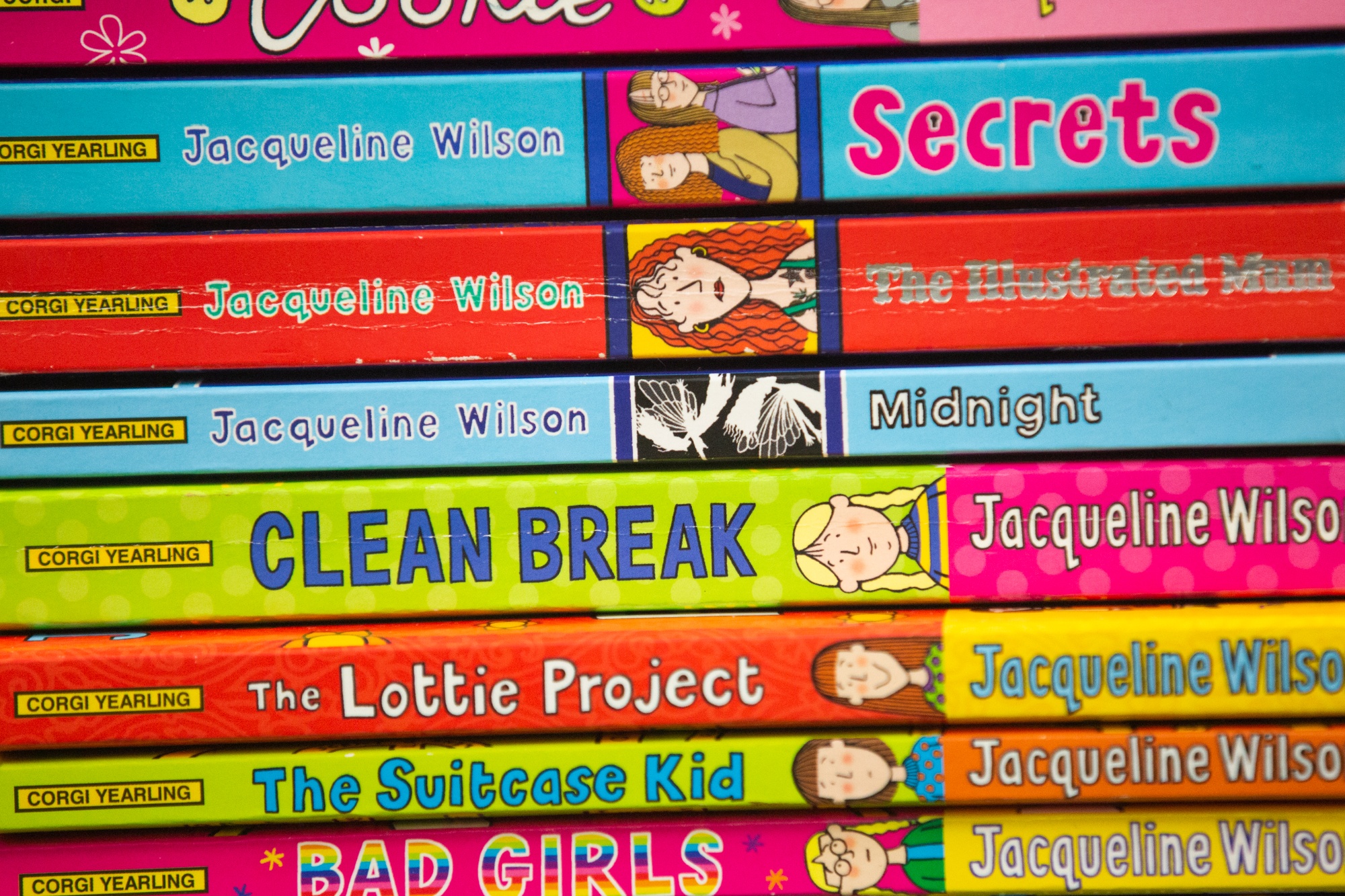Being an Author (Reading)
At Barrs Court, our aim is to equip all children with the skills needed to become fluent, confident readers. We passionately believe that the ability to read is central to pupils’ development and their success in education and beyond. Consequently, reading is given a high priority by creating opportunities for children to become independent, enthusiastic and life-long readers. It is our mission to enable every child to experience the magic and joy of reading by introducing them to a wide range of carefully chosen texts.
Our Reading Journey
Early Reading in Reception and KS1
Phonics and Reading in Reception and Year 1:
Children in Reception and Year 1 are taught Phonics using the Little Wandle Phonics Programme. In Reception children begin learning Grapheme-Phoneme correspondences (GPCs) from Phase 2 to 4. (See Programme Overview which shows the progress of GPCs and tricky words taught each term). The progression is organised so that children are the taught from the simple to more complex GPCs, as well as taking into account the frequency of their occurrence in commonly encountered words. In Year 1, pupils move onto Phase 5 which focus on ‘growing the code’ and learning alternative graphemes for known phonemes.
Download: Little Wandle Phonics and Reading Presentation for parents
All the graphemes taught are practised in words, sentences, and later on, in fully decodable books. Children review and revise GPCs and words, daily, weekly and across terms and years, in order to move this knowledge into their long-term memory.
Daily Phonics sessions have a familiar structure with opportunities to revisit and embed prior learning, teach and practise new skills, and practise and apply their skills in the context of reading and writing sentences.

In addition to daily Phonics sessions, pupils apply their understanding during ‘Reading Practise Sessions’. Pupil’s phonic knowledge is assessed regularly and teachers are able to match decodable texts to pupils’ secure phonic knowledge – This means that pupils practise applying their understanding and do not come across words containing GPCs, tricky words etc that they do not yet know. Pupils read with a trained adult 2-3 times each week using decodable ‘Big Cat for Little Wandle’ texts linked to their secure Phonic knowledge. Every session begins with practise recalling focus GPCs, reading of tricky words, focus words and exploration of new vocabulary. Each session then has a clear focus on either decoding, prosody or comprehension.
At the end of Year 1, pupils complete a statutory ‘Phonics Screening Check’ in which they are assessed on their understanding of letter sounds and decoding skills. They read real and pseudo (nonsense) words - This is a great way of practising breaking words into smaller parts and identifying known graphemes in unfamiliar words.

Reading Books:
Pupils’ phonic knowledge is assessed termly and this information is used to match decodable 'Big Cat for Little Wandle' texts to each child’s secure Phonic knowledge. Following their three Reading Practise sessions in school, children then take home a copy of the same book to read at home. By this point, children are able to focus on fluency and comprehension and this is a fantastic celebration of the child’s reading journey that week. In addition to a decodable ‘Big Cat for Little Wandle’ book, children will take home a high quality ‘sharing book’ from our school library to enjoy reading with family members at home.
Reading in Year 2 and KS2.
Whole Class Reading:
From Year 2, Reading is taught through whole class reading sessions. With the majority of children reading fluently by Year 2, our focus is now on understanding a text. The reading skills of vocabulary, inference, prediction, explanations, retrieval and summarising (VIPERS) are explicitly taught over a fortnightly cycle where children learn to identify the meaning of texts by modelling and practising key strategies. When planning these sessions, teachers refer to our Reading Progression Document which identifies the objectives for each year group and ensures pupils are taught age appropriate skills in each year group.
Download: READING PROGRESSION OF SKILLS
Within these sessions, teachers will model reading focussing more specifically on how we identify the meaning of unknown words. All pupils engage with a wide range of high-quality texts including classic and modern stories, a range of non-fiction texts (which may be linked to their enquiry) and poetry. Teachers use questioning, discussion and feedback to ensure pupils develop reading skills that allow them to analyse and comprehend age-appropriate texts. In all these activities, teachers will look for opportunities to encourage lots of book talk to also develop the children’s oracy skills further.
Reading Books:
After completion of the Phase 5 Little Wandle Reading scheme, children's reading fluency and pace is assessed in order to identify an appropriate book level. Children progress through Purple, Gold, White, Lime, Cooper and Topaz book bands. They read Big Cat fiction/non-fiction books that help them develop stamina, fluency and facilitate opportunities to practise applying a range of reading skills. Once pupils reach the end of our banded 'Big Cat' reading books, they become a 'Rainbow Reader'. These are carefully chosen early chapter books which provides a manageable progression from book banded books, to becoming a free reader.
Additional Support for Reading
Teachers use formative assessment during Whole Class Reading sessions to identify pupils at risk of falling behind Age Related Expectations (ARE). Termly summative assessments are also used to track and monitor pupil progress in Reading. The pupils with the lowest 20% attainment (plus pupils with SEN needs) are identified and additional support is implemented to ensure these pupils have opportunity to ‘close the gap’ and make at least expected progress.
Reception and KS1:
In Reception and KS1, pupil progress is carefully monitored using Little Wandle Phonics assessments, Phonics Screening assessments, teacher assessment during lessons and Reading assessments (Year 2). Little Wandle ‘Keep up sessions’ are used to address gaps in children’s Phonic knowledge or support children developing specific skills such as blending/tricky word recognition. These are either group or individual sessions dependent on the focus. Precision teaching is also used to develop fluency and confidence recognising GPCs and tricky words. Short daily sessions are tailored to the needs of individual pupils.
Phonics support in KS2:
In Year 3 and 4, children at risk of falling behind follow the 'Little Wandle Rapid Catch Up Programme' which addresses gaps in Phonic knowledge and provides opportunity to read decodable texts during Reading Practise Sessions. These pupils are assessed regularly to monitor progress carefully and these sessions aim to help pupils make accelerated progress.
Extra Readers (1:1):
Teaching staff identify children who will benefit from additional 1:1 reading opportunities in school. Our trained reading assistant and volunteers read with these children on a weekly basis.

Reading at Home
To encourage regular reading at home, children are asked to read five times per week as part of their home learning. If this is achieved, they earn a ‘Fiver’. Earning ‘Fivers’ will enable children to achieve ‘Reading Karate’ belts, certificates and bands which regularly presented and celebrated in assemblies.
Reading for Pleasure
We know that children with positive attitudes towards reading are more likely to read at or above their expected age. In addition to this, children who read for pleasure make significantly more progress in vocabulary, spelling and maths than children who read very little. Therefore, reading for pleasure is very much promoted across our school and we aim to foster a life-long love of reading.
At Barrs Court, every class reads their own ‘class book’ in addition to their book they are reading to inspire their writing outcomes. All classes read this book at the same time of the day and children look forward to this dedicated reading time each day.
Our children engage with a range of different types of books and authors and each class has a dedicated, weekly, ‘Drop Everything And Read’ session where the children can read a book of their choice or can vote for a book for the teacher to read to them. We encourage plenty of book talk and discussion in these sessions. We often visit our school library during these sessions too so that the children can browse the shelves and take a book out if they wish. We also celebrate World Book Day annually and hold regular Book Weeks with a whole school theme. Children also have the opportunity to participate in regular reading events, book swaps, community library visits and sponsored reading events during the year.
Our new library
We are very proud of our new library which is well-stocked with a vast range of high quality texts and is run by our librarians in Year 4. Every class in school is encouraged to book a slot in the library on a regular basis so that the children can peruse the shelves and take a book home to read themselves or share with an adult. We aim to update our books regularly so that our children can access a wide range of modern fiction and non-fiction and foster an interest and love for books.
Virtual Library
Come and have a look at our virtual library and enjoy listening to a story with your family.
Download: Barrs Court Virtual Library
Assessment
Children’s progress in Reading is assessed against ‘Age Related Expectations’. Teachers use pupils’ verbal and written responses to inform their judgements and they’re able to use this assessment information to see any gaps in learning and prioritise support for the following term.
In Reception and KS1, pupil's phonic knowledge is assessed termly using Little Wandel Assessments and this information is used to plan opportunities for consolidation, keep up intervention and to assign appropriate book banded books. Year 1s also complete regular practise Phonic Screening Check assessments to monitor progress in preparation for the end of Year 1 Phonics Screening Check.
Children in all year groups complete summative NFER reading assessments help teacher's monitor pupil's comprehension skills through answering written questions. This information helps teachers plan and teach Whole Class Reading Lessons that enable pupils to make progress. Teachers also hear pupils read regularly and carry out Reading Fluency Assessments which help identify appropriate book bands and monitor pupil pace/accuracy.
Children in Year 2 are also assessed against the Reading TAF Framework and Year 2 and 6 pupils take a Reading SATs paper in term 6.
